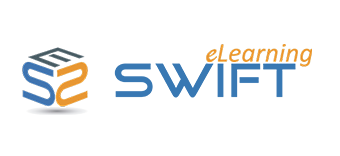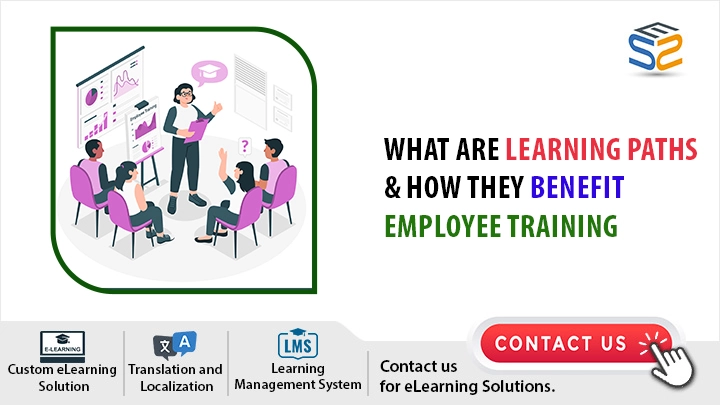Discover the power of personalized learning paths, interactive content, and comprehensive analytics with our LMS. Get started today!
Introduction
The evolving corporate landscape demands innovative training solutions. Learning paths, integral to modern Learning Management Systems (LMS), offer a structured approach to employee development. They enable personalized and continuous learning journeys, ensuring that employees acquire the skills and knowledge essential for their roles.
What Are Learning Paths?
Learning paths are curated sequences of educational content designed to guide learners through a specific subject or skill set. These paths are tailored to individual needs, enabling employees to progress at their own pace while ensuring comprehensive coverage of necessary topics. In an LMS, learning paths can include courses, videos, assessments, and interactive modules.
The Importance of Learning Paths in Employee Training
How Learning Paths Work
Learning paths work by breaking down complex subjects into manageable segments. Each segment builds upon the previous one, creating a logical progression. This structured approach helps employees develop a deeper understanding of the material. LMS platforms like BenchStep make it easy to create and manage these paths, ensuring a seamless learning experience.
Types of Learning Paths
There are several types of learning paths:
- Linear Learning Paths: Follow a strict sequence.
- Non-linear Learning Paths: Allow learners to choose their own path.
- Blended Learning Paths: Combine online and offline learning activities. These variations cater to different learning styles and organizational needs, making learning paths a versatile tool in employee training.
Benefits of Learning Paths for Employee Training
Enhanced Engagement and Motivation
Learning paths enhance engagement by providing clear goals and milestones. Employees can see their progress and understand the relevance of each step in their training. This transparency boosts motivation, as learners are more likely to stay committed when they see tangible results.
Personalized Learning Experience
Personalized learning paths ensure that training is relevant to each employee’s role and career goals. This customization increases the effectiveness of training programs, as employees are more likely to engage with content that is directly applicable to their job. With BenchStep LMS, creating tailored learning paths is straightforward, allowing for a high degree of customization.
Improved Knowledge Retention
Structured learning paths improve knowledge retention by reinforcing learning at regular intervals. By revisiting key concepts and practicing skills in a logical sequence, employees are more likely to retain and apply what they have learned. This leads to better performance and a higher return on investment for training programs.
Implementing Learning Paths in Your LMS
Setting Up Learning Paths
To implement learning paths in your LMS, start by identifying the key skills and knowledge areas required for each role. Create a sequence of courses and materials that build upon each other, ensuring a logical progression. Use the LMS’s tools to track progress and adjust paths as needed.
Best Practices for Effective Learning Paths
- Define clear objectives: Ensure each path has specific, measurable goals.
- Keep it flexible: Allow for adjustments based on learner feedback and performance.
- Incorporate various content types: Use videos, quizzes, and interactive elements to maintain engagement.
- Regularly update content: Ensure that learning paths remain relevant by updating materials and adding new content as needed.
Case Study
Success Story with BenchStep LMS
Consider the case of a large retail company that implemented learning paths using BenchStep LMS. They tailored paths for different roles, from sales associates to store managers. The result was a marked improvement in training engagement and employee performance. Sales associates reported feeling more confident in their roles, while managers appreciated the structured approach to skill development.
Conclusion
Learning paths are a powerful tool for enhancing employee training. They provide structure, personalization, and continuous learning opportunities, leading to better engagement, retention, and performance. Implementing learning paths in your LMS, like BenchStep, can transform your training programs and drive organizational success.
Experience the full capabilities of BenchStep LMS with a free trial. Discover how our personalized learning paths can drive success in your organization.
Frequently Asked Questions (FAQs)
Q1. What is a learning path in LMS?
A. A learning path is a customized sequence of courses and training materials designed to guide learners through their educational journey step-by-step.
Q2. Can I see my progress in a learning path?
A. Yes, BenchStep LMS provides a progress tracker that shows how far you have advanced in your learning path, helping you stay on track and motivated.
Q3. Can I customize my learning path?
A. While the learning path is initially set by your instructor or manager, you can often adjust the order of courses and add additional resources to better fit your learning style.
Q4. How do learning paths benefit employee training?
A. Learning paths enhance engagement, provide personalized learning experiences, and improve knowledge retention, leading to better employee performance.
Q5. How do I implement learning paths in an LMS?
A. Identify key skills, create a logical sequence of courses, track progress, and adjust paths as needed using LMS tools.
Q6. What types of learning paths are there?
A. Linear, non-linear, and blended learning paths cater to different learning styles and organizational needs.




